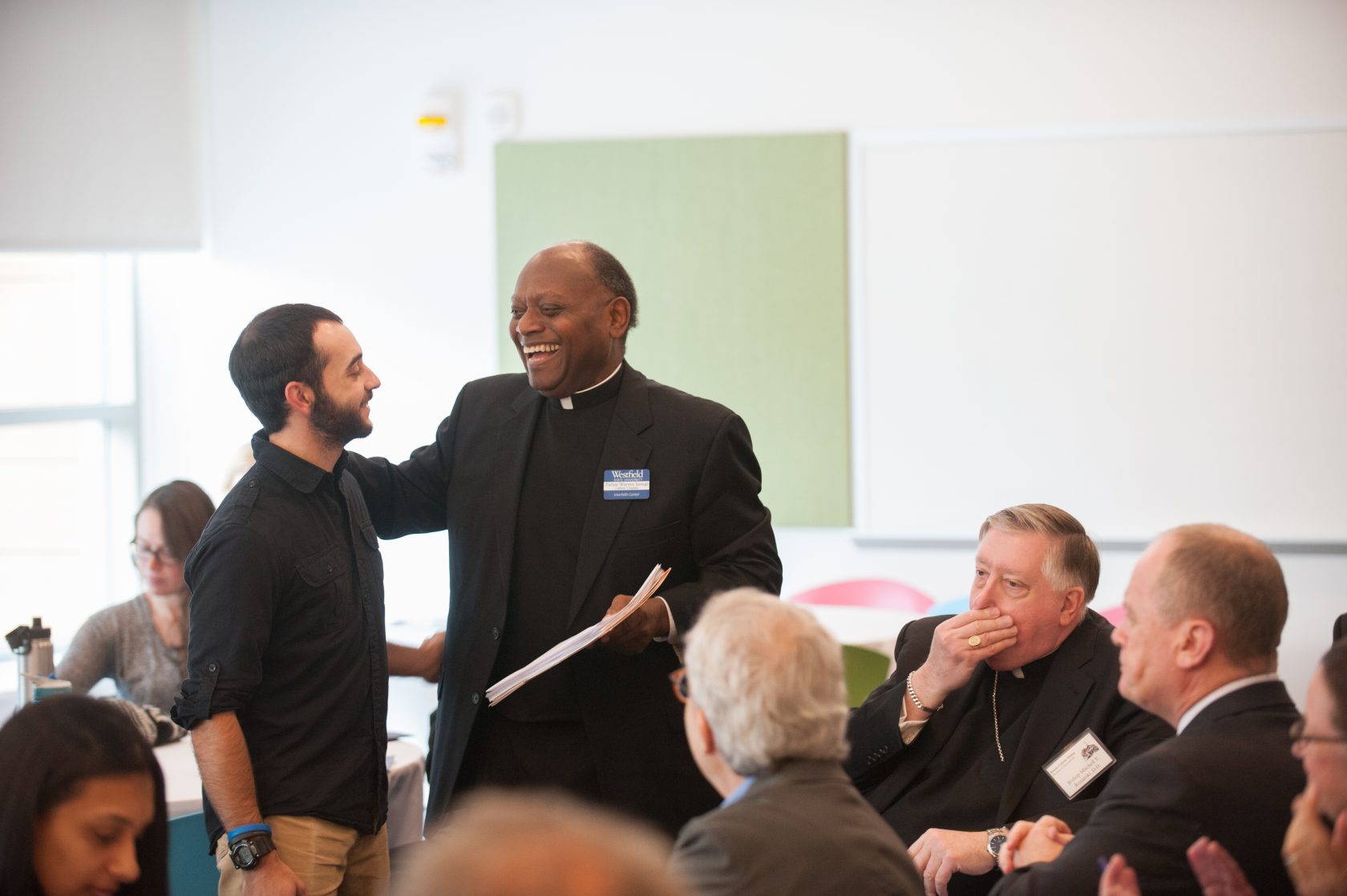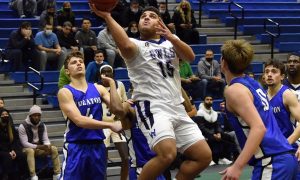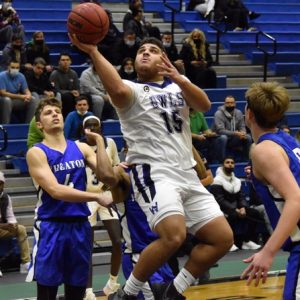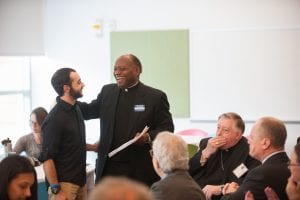
The Rev. Warren Savage, standing center, leads the Ferst Inter-faith Center at Westfield State University. He is seen here with a student during last year’s Interfaith Summit that brought to-gether spiritual leaders from across Western Massachusetts. Seated to Savage’s left is the Most Rev. Mitchell T. Rozanski, bishop of the Roman Catholic Diocese of Springfield. This year’s summit will take place next month. (WESTFIELD STATE UNIVERSITY PHOTO)
By Ramon S. Torrecilha
President, Westfield State University
In a day and age when faith can be tested on a regular basis and at a time when it is imperative to find commonalities among our many individual differences, the Albert and Amelia Ferst Interfaith Center shines as a comforting and binding force.
The interfaith center, situated in the heart of the Westfield State University’s campus, is symbolic of its influence on the university community. Led by the Rev. Warren Savage and sup-ported by a full council of area chaplains, the center and its clergy serve as integral sources of comfort and help for students and other members of the campus community.
And, thanks to the innovative and direct leadership exhibited by Father Savage, the center continues to exude its relevance on stages beyond the campus of Westfield State, as it plans the second annual Interfaith Summit next month, which will attract spiritual stewards throughout the Pioneer Valley.
As all students, but especially first-year or transfer students acclimating to campus culture, look to form relationships and engage with those who share backgrounds, interests, causes, values, or perspective, the interfaith center has a hand in fostering those relationships and bolstering fellowship among the community.
As students adjust to the rigors of college life, try to make sense of the unimaginable tragedies that are occurring in the world around us, or attempt to grapple with the array of struggles inherent in young adulthood, the interfaith center pro-vides a sanctuary and support for individuals to reflect, re-charge and engage.
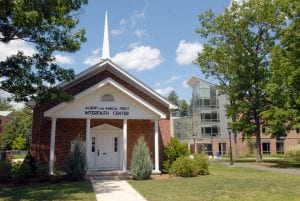
The Albert and Amelia Ferst Interfaith Center at Westfield State University opened in 1982 thanks to a community-wide fund-raising effort. (WESTFIELD STATE UNIVERSITY PHOTO)
The center opened in 1982 following the work of community leaders who formed the Westfield State Foundation. The foundation has since supported the center and its founding mission to continue to welcome all. Students and others on campus who seek the center’s services, do so not as Catholic, Protestant, Episcopal, Methodist, Jewish or Muslim individuals. Rather, they seek and receive services as members of our community.
College campuses serve as microcosms of the broader society. They are also settings where new social and political views and concepts are introduced and debated. Campuses are uniquely poised to encourage rich discourse on these topics and take advantage of teachable moments, which come early and often on the campuses of institutions of higher learning, here and around the globe.
This has been made clear several times during my presidency at Westfield State, but perhaps more poignantly in 2017, when Westfield State endured a series of hateful and bias incidences on campus.
Among my first calls following the first and subsequent incidents was to Father Savage, asking for the Ferst Interfaith Center’s help in facilitating discussion as we moved to heal our di-verse campus community. The chaplains welcomed the chance to take a leadership role in bringing about greater understanding and compassion. They were effective in their emphasis of the elements that united our campus community rather than focusing on those that divided it.
The center has also helped students during tragic events affecting a religious community, such as comforting Jewish students after the Tree of Life mass shooting in Pittsburgh in October 2018 and the mosque attack in Christchurch, New Zealand, last March. Helping students make sense of a world that seems to have lost its way is part of the center’s mission.
Beyond the support and engagement that students receive from participating in its activities, the Ferst Interfaith Center helps Westfield State in its academic mission. Clergy are often consulted by faculty, and their knowledge is incorporated into coursework for various academic departments, including social work, criminal justice, and ethnic and gender studies.
Many public universities lack an interfaith center. Yes, you might find a Newman Center for Catholic students, a Hillel for those who are Jewish, and a Muslim Student Association in separate spaces on a particular campus. To tend to students of all faiths under one roof is less common, so we embrace the opportunity by promoting student involvement and inclusivity in our interfaith center.
The center provides a vital platform for student support while nurturing diversity and civility. It fosters tranquility and fellow-ship in a fast-changing, less personal world. Although it has been part of the fabric of our campus culture for nearly four decades, we never take for granted the value of the Ferst Inter-faith Center in our community.
Ramon S. Torrecilha, Ph.D. is the president of Westfield State University. To learn more about the university and its programs, go online to westfield.ma.edu.

